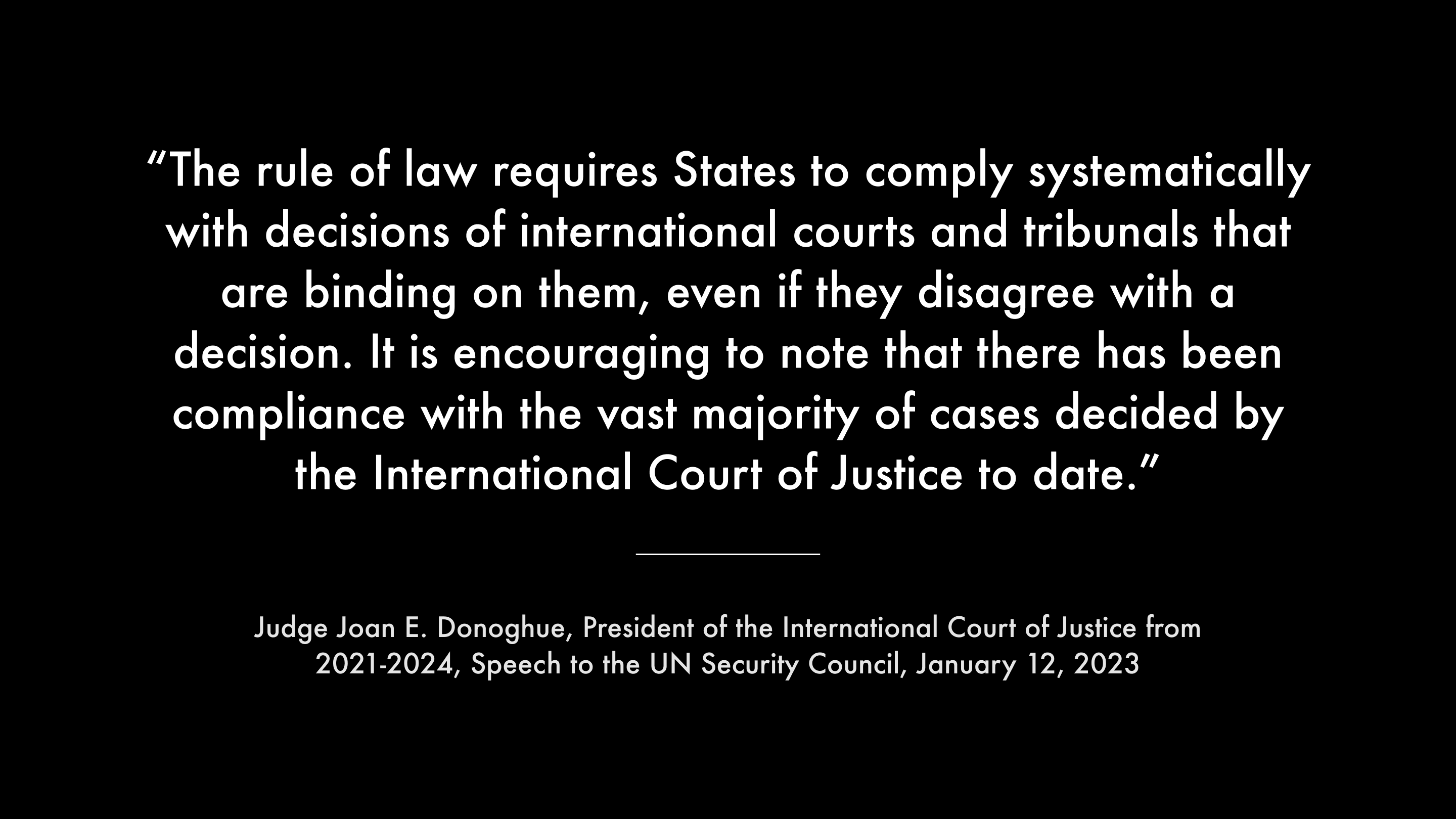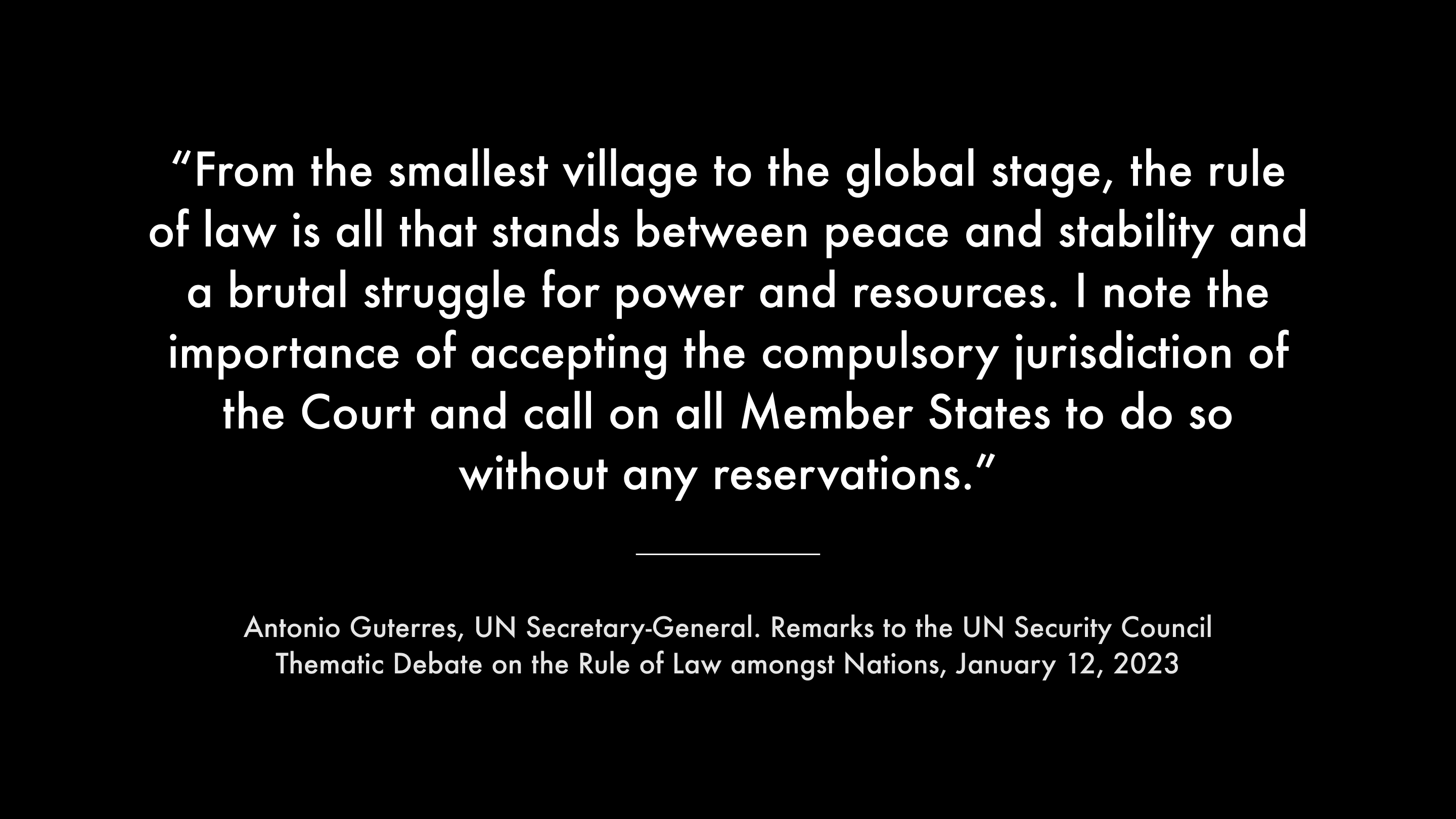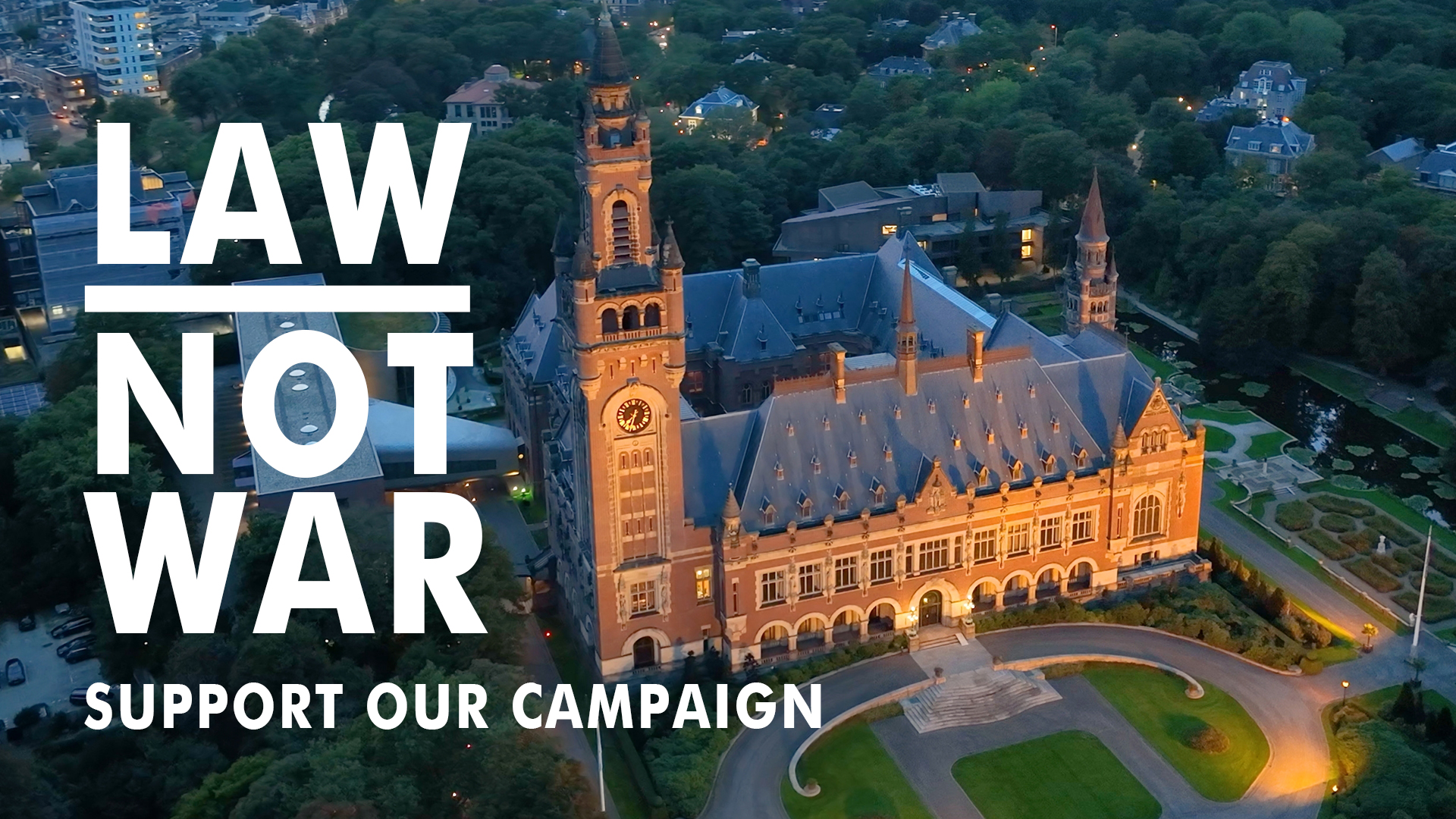LAW not War, one of WFM’s key programs, is a new global campaign to enhance the jurisdiction and use of the International Court of Justice (ICJ), in order to assist countries resolve international disputes peacefully rather than through recourse to the threat or use of force.
To kickstart the work of the campaign LAW not War have created a crowdfunding fundraiser. Find out more and support this important work HERE.
Choosing Courtrooms over Battlefields
The team at LAW not War actively works to prevent war, strengthen international law, advance justice, achieve accountability for heinous atrocities and international crimes and to resolve the most critical issues plaguing our planet. Our legal and political experts do this by advocating for better use of the international legal ecosystem – in particular the International Court of Justice (ICJ).
You may recently have seen the International Court of Justice in the news. Since its establishment in 1945 it has considered 192 cases. Today, It is busier than ever before, including hearing three genocide cases and an unprecedented case to hold States accountable for climate justice. The Court sits in the Hague and is one of the most effective organs of the United Nations.
An analysis of ICJ cases by Judge C.G. Weeramantry (former Vice-President of the ICJ), indicated that about 90% of ICJ cases are implemented in practice – either fully or in large part.
Concrete successful stories:
Did you know that in 1974 the court considered a case against the harmful French atmospheric nuclear testing in the Pacific? The case successfully moved France to end atmospheric testing in 1975. A follow-up case on French underground testing in 1995 led to France ending all nuclear testing and closing their nuclear test site for good in 1996.
In 1989 the Court considered a case lodged by Nauru (an island in the Pacific) against Australia for the environmental damage from Australian-led mining which stripped away nearly 90% of Nauru’s topsoil. The case pushed Australia (and New Zealand) into making a generous settlement to Nauru for the damage.
In 1994, the Court settled a longstanding and often bloody dispute between Chad and Libya over ownership of the resource-rich Aouzou Strip between their countries. The Court ruled in Chad’s favor. Libya accepted the decision, withdrew their forces and signed a peace agreement with Chad that still holds today.
In 1996 the Court ruled that the threat or use of nuclear weapons is generally illegal under the law of armed conflict. This ruling has been recognised by most of the nuclear-armed states and has strengthened the norm against nuclear weapons use.
In 2010, Costa Rica, a state without a military since 1948, challenged Nicaragua at the ICJ, when Nicaraguan military forces entered the disputed territory of Isla Portillos between their countries. The Court sided with Costa Rica. Nicaragua withdrew their troops and even paid compensation to the Costa Ricans for environmental harm.
These are but a few examples of the Court’s wide reaching, concrete and positive impact.

The ICJ currently has 20 cases on its docket, more than at any point in its history. This includes three cases regarding allegations of genocide (The Gambia v Myanmar, Ukraine v Russia and South Africa v Israel), and requests for Advisory Opinions on the Obligations of States in respect of Climate Change and the Legal Consequences arising from the Policies and Practices of Israel in the Occupied Palestinian Territory, including East Jerusalem. A part of LAW not War’s work is to help the general public (non-lawyers) to understand and utilize such cases.
What will LAW not War do with this funding?
- Advocacy: these funds will help us engage directly with States to encourage them to make better use of the jurisdiction of the court for international conflicts and other critical global issues. This includes encouraging States that have not yet accepted the compulsory jurisdiction of the ICJ to do so. We have strong relationships with many States who have already accepted the universal jurisdiction of the Court, and are working with them to promote universal jurisdiction of the Court.
- Spreading ICJ success stories: the many success stories of the ICJ can encourage additional States to accept its jurisdiction. However, these stories are not well known. LAW not War is working to popularize these success stories to governments, legislators, media and the general public.
- Key Events: we are organizing a number of key events on LAW not War at the United Nations in New York and Geneva, at inter-parliamentary and treaty body assemblies, international law events and relevant civil society conferences.
- Communications: these funds will help us educate the general public and policy makers alike. We will build an informative website, and roll out educational communications campaigns on social media, via various newsletters and other media channels.

Our Non-Profit Coordinating Organizations: World Federalist Movement-Institute for Global Policy (WFM/IGP), Citizens for Global Solutions, World Future Council, UNFOLD ZERO, Aotearoa Lawyers for Peace, Basel Peace Office, Peace Action, Training and Research Institute of Romania.
See a list of the 85 Participating Organizations who have endorsed and support the LAW not War campaign here

